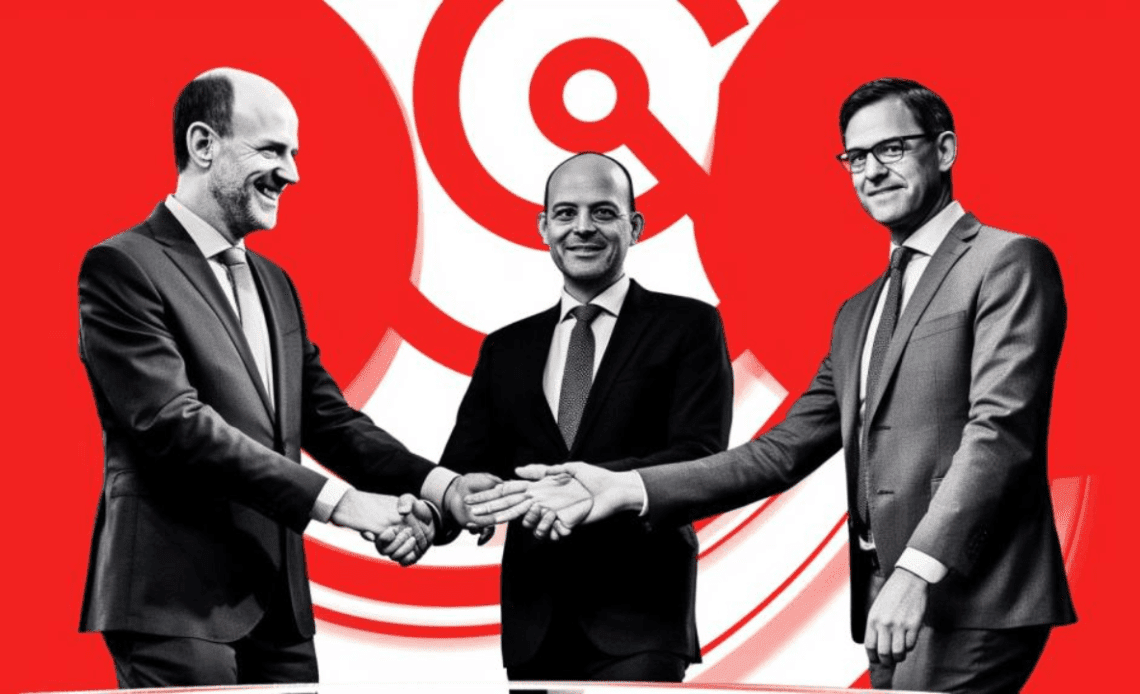Photo was created by Webthat using MidJourney
Vodafone and Three’s £15bn Merger Proposal
The UK telecoms market is set to see a potential major shake-up with the proposed merger between Vodafone and Three. If given the go-ahead, it would create the biggest mobile operator in the country, knocking EE off the top spot in terms of subscribers.
However, with a deal worth £15 billion and regulatory approval required from both the Competition and Markets Authority and the UK Government, it’s important to understand what this merger means for the telecoms industry and consumers.
Merger Details and Potential Impact
The merger between Vodafone and Three, both major mobile network providers in the UK, would create a new company valued at around £9 billion in equity and £6 billion in debt. If approved, this merger could lead to a more competitive market, improved services, and increased investment in the UK telecoms industry.
However, the potential downside is that CK Hutchison, which currently owns Three, may withdraw from the UK market altogether, leading to a less competitive environment. This raises concerns around national security risks, which must be carefully considered.
Previous Attempt by Three to Merge with O2
In 2016, Three attempted to merge with O2, another prominent mobile network provider in the UK. However, the move was blocked by European competition regulators before the UK left the EU’s jurisdiction. Now, with a more favorable market situation, there is optimism that the Vodafone and Three merger could go ahead.
Regulatory Approval Required
Before the merger can go ahead, it must receive regulatory approval from both the Competition and Markets Authority and the UK Government. A major focus of the approval process will be the potential impact on competition, as well as wider considerations for the UK economy and national security. The scrutiny will be rigorous and may take some time to complete.
Potential Consequences for Consumers
While the merger could potentially lead to improved services and investment, consumers may end up paying the price. A lack of competition could lead to higher prices and less choice in the market, which would be a significant setback for consumers.
The regulators must keep this in mind when deciding whether to give the merger the green light and ultimately strike a balance between safeguarding consumer interests and allowing the telecoms industry to thrive.
The Future of UK Telecoms
The proposed merger between Vodafone and Three is an important development in the UK telecoms market, with significant implications for both the industry and consumers.
While it could potentially lead to a more competitive market and improved services, there are also concerns around national security and the potential for higher prices and less choice for consumers due to a lack of competition. The regulatory approval process will be rigorous and the decision made will have far-reaching consequences.
Although the final verdict is uncertain, the merger possesses the capability to revolutionize the telecommunications arena in the UK.
CLICK HERE TO READ MORE ON WEBTHAT NEWS


